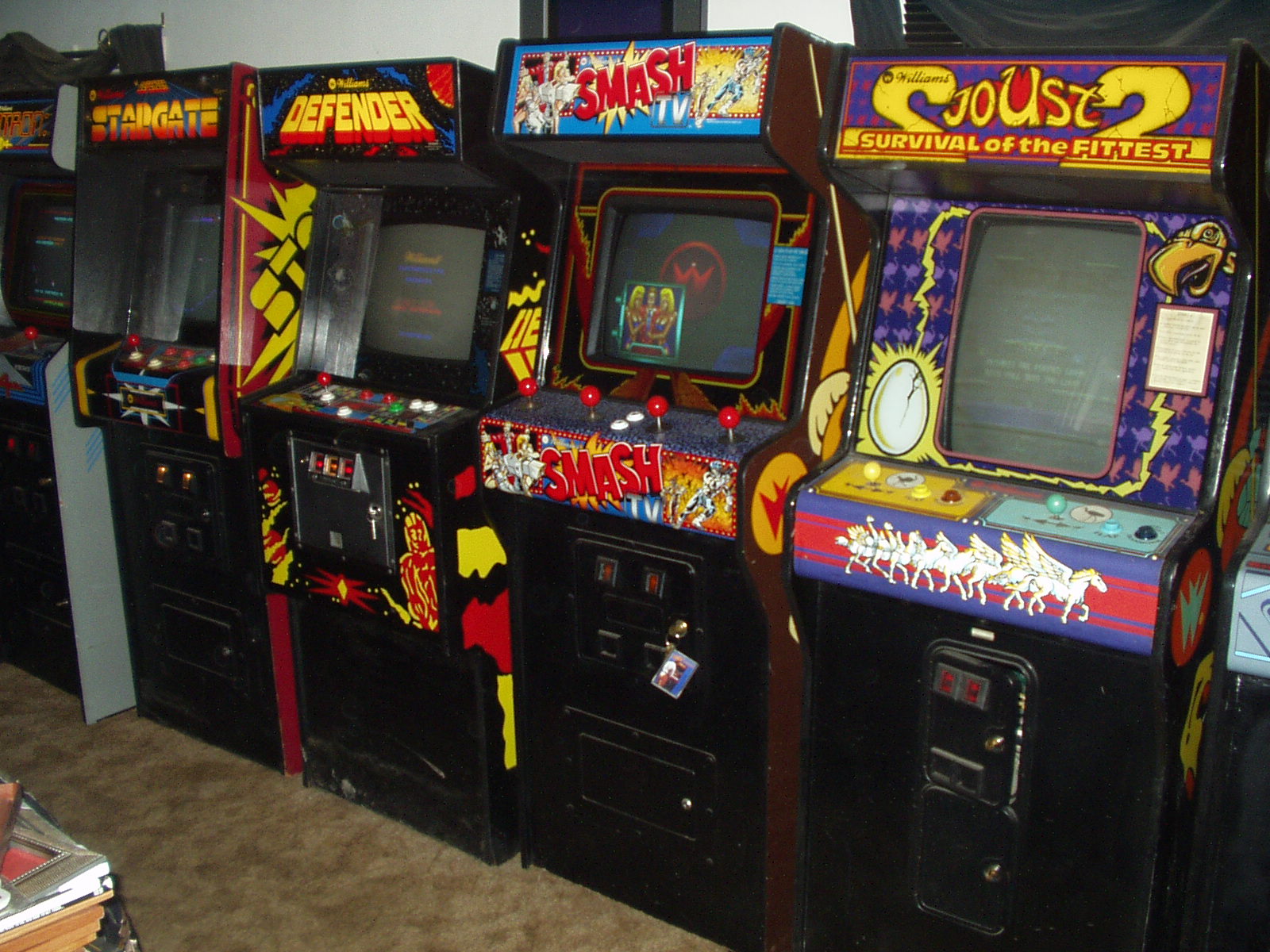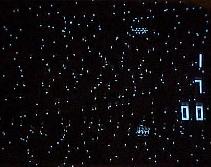Arcade Games
Essentially, an arcade game (figure at the right)
is a machine that runs games only if coins are put
in it. These machines are often called coin-op because they
are coin-operated.
Arcade games were not created for domestic employment (exceptions
are possible), indeed they take place in public places like
video arcades, bars and also restaurants.
There are many kinds of arcade games but the most important are
video games, merchandisers, redemption games and pinball machines.
In this page, we will treat mainly of arcade video games.
Origins of arcade video games
Inspired by Spacewar3, one of the earliest digital
computer games, in 1971 some students of the Stanford University
created the Galaxy Game, the earliest known coin-operated
video game.
A few months later, another important arcade video game was introduced:
Computer Space. The game was created by
Nolan Bushnell and it was the world's first commercially sold
coin-operated video game.
Nolan Bushnell, in collaboration with Ted Dabney,
founded in 1972 the Atari corporation.
This company was important for the history of arcade video games
because it gave birth to the coin-operated video game industry
with an electronic ping pong video game:
Pong.
All these creations really marked the beginning of a new era:
the era of arcade video games. From late 1970s until mid 1985 arcade
video games reached the peek in popularity and, for this reason, this period
is known as the golden age of arcade video games.
Nowadays arcade video games have lost a lot of popularity because
people can play video games comfortably and for free at home.
Arcade Genre
The word "arcade" has assumed a new meaning in our days, indeed
when we talk about "arcade" we usually refer to a genre of video
games for not coin-operated entertainment machines (PCs and consoles).
Video games of PCs and consoles can be gathered under the genre of
"arcade games" if they share the features that are peculiar of arcade games:
- Short levels
- Fast increase of difficulty
- Intuitive control settings
- Hand-eye coordination skill required to play
Arcade games (we are referring to machines now) have these qualities because the player can play these games for a limited amount of time. Since the duration of time is determined by avatar's life and coins, the game must be easy to learn and short.
Galaxy Game
Galaxy Game is practically the reprogrammed version of Spacewar
(a video game released in 1962) and it was the earliest coin-operated
video game. The game was created in the University of Stanford in September 1971.
At the beginning only one unit of the game was built, but after a while
programmers decided to include more consoles in order to allow users
to play against each other.
In the game the player has the control of a starship and, with it, he
must destroy the starship of the other player. In the center
of the screen there is a star that pulls on starships and needs a
manoeuvre to avoid falling into it.
Computer Space
As we said before, this game was programmed by
Nolan Bushnell and it was released by Nutting Associates4 in 1971.
Computer Space is known as the first coin-operated video game
(and also first video game) to be traded and widely-available.
The gameplay is a bit different from the one of the Galaxy Game:
the player, which has control of a rocket ship that is commanded by
a thruster and a couple of rotational buttons, must avoid enemy fire
from a pair of UFOs (unidentified flying object). The ship is equipped with
missiles, so the player can fire back and destroy the ships of the
enemies.
The player has the possibility to increase play time by beating
the score of the saucers. If he is able to get an higher score at
the end of 90 seconds, he will automatically gain another 90 seconds.
External Links
- [Visited on 04/11/14] Image taken from: http://m2arcade.com/wp-content/uploads/2014/02/sotg-arcades.jpg
- [Visited on 04/11/14] Image taken from: http://www.gameclassification.com/files/games/SCREEN.jpg
- [Visited on 04/11/14] Spacewar
- [Visited on 04/11/14] Nutting Associates
All images are fair use intended.

